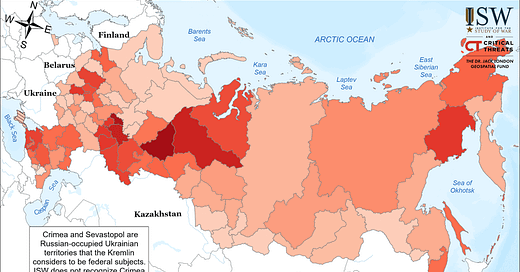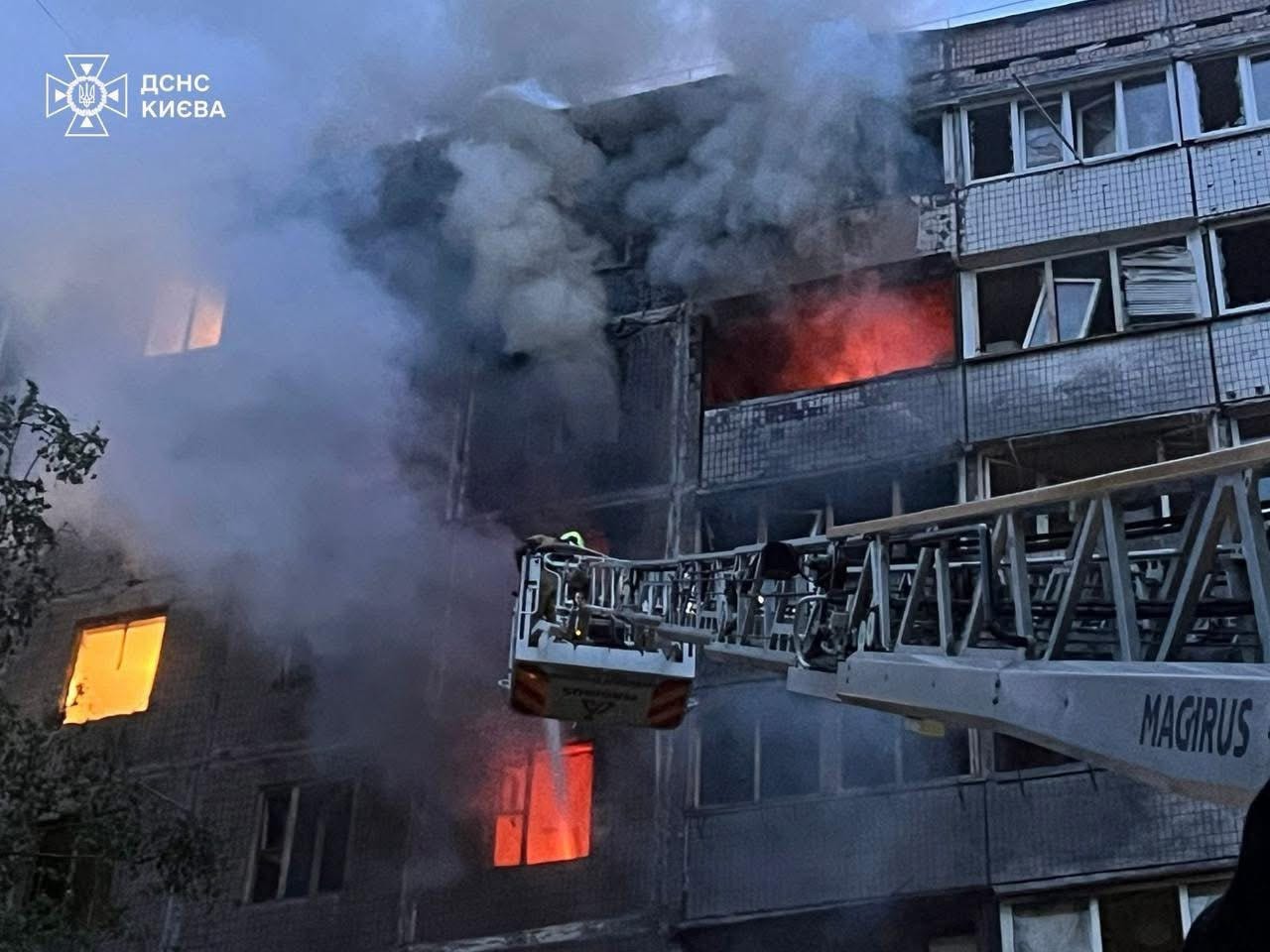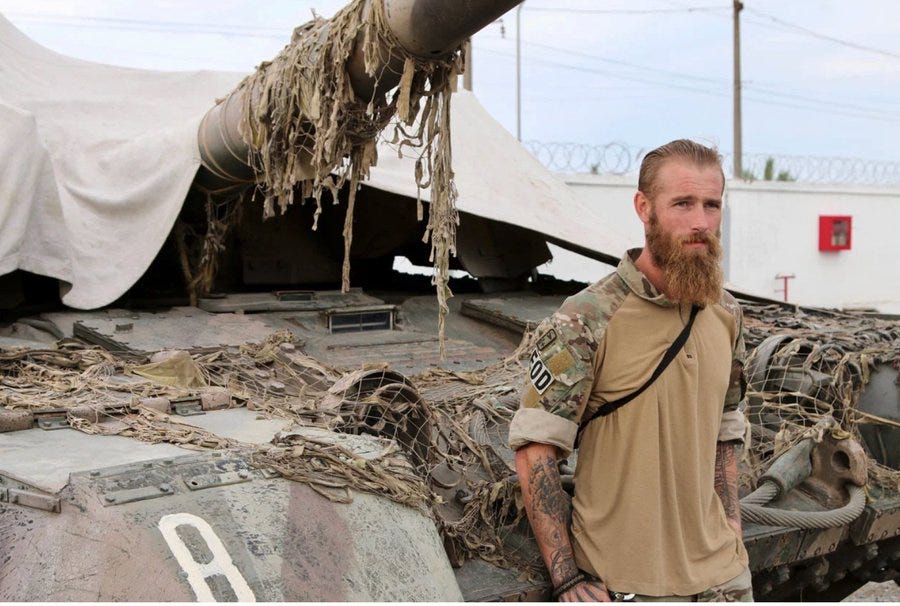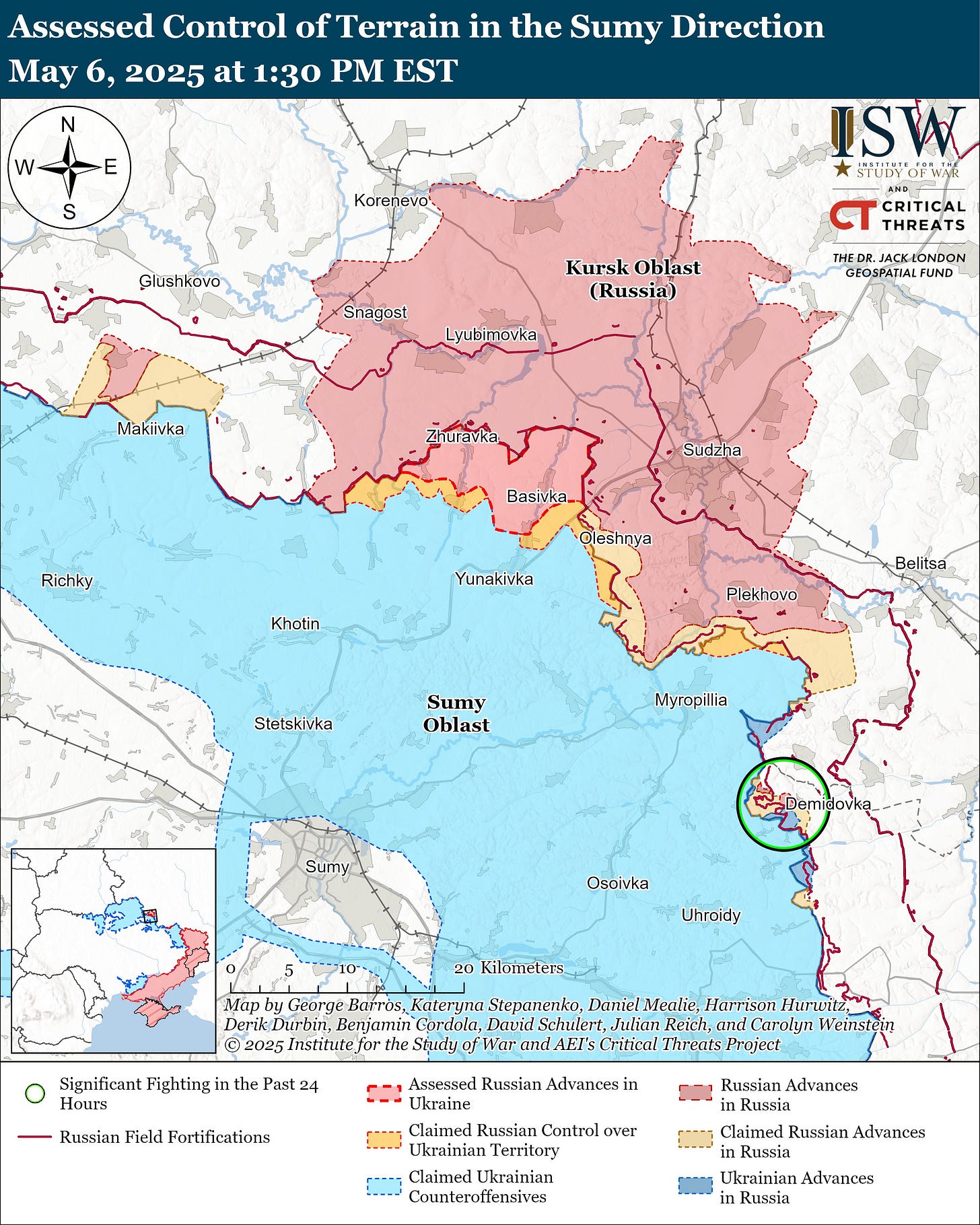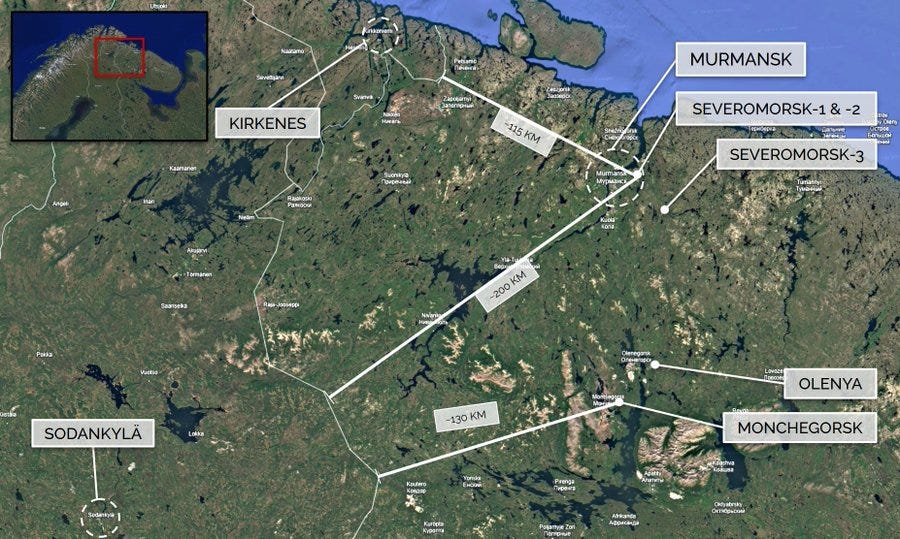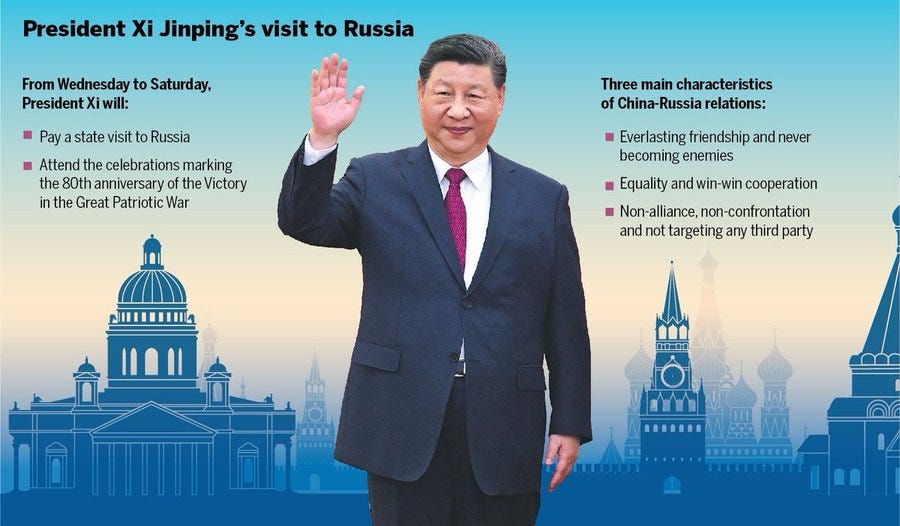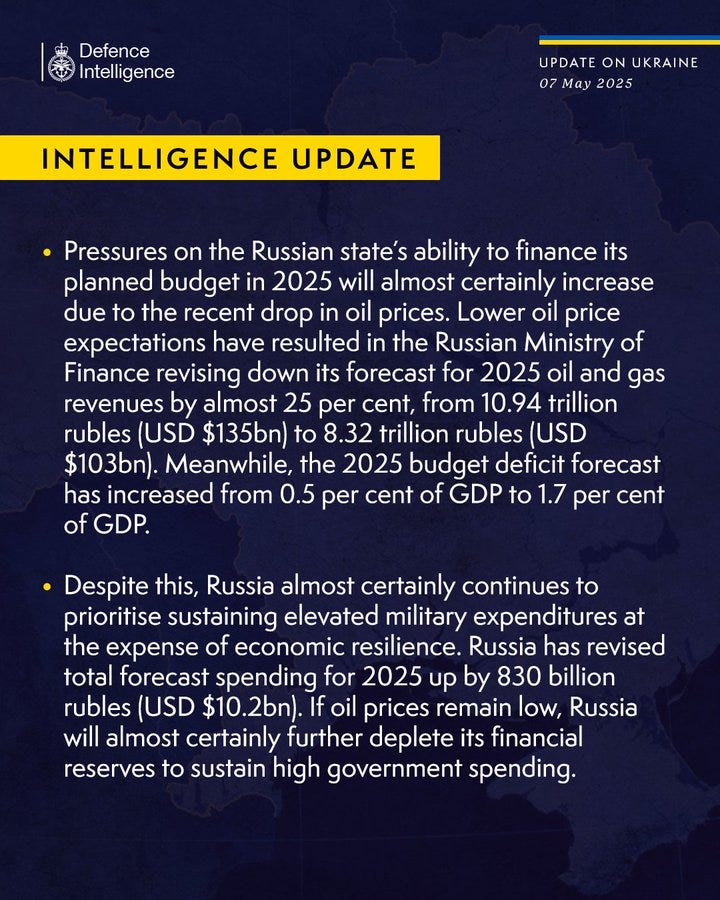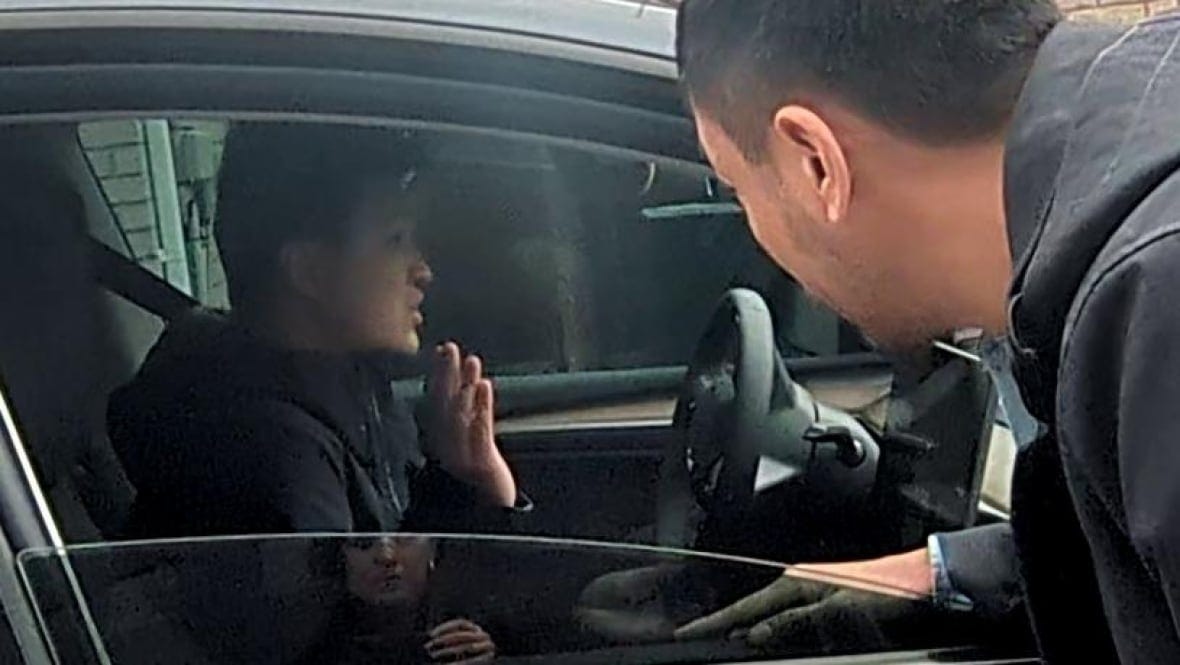May 8: E-Stories
InUkraine Garrett SitRep BehindLines Russia-China Europe AlbertaSeparation TaiwanDemocracy RUbases MayDay Xi FSB JDVance Syria Georgia Romania CryptoBros Conclave DOGE TheFED JoeNye
Catching up…
For specific news about Trump, his regime and its dealings with Russia, I direct you to Olga’s substack. She and Julie Roginsky publish a weekly podcast, “Pax Americana”, which is highly informative.
For a general view of news from various geopolitical threatres, Scott’s EA Worldview is always superb.
Join EuroFile’s briefing on the elections in Canada, Australia and Germany, as our guest Scott Lucas, and the team with Madi Kapparov et al dissect the elections, and what they mean for the U.S. and the European Union.
Thursday May 8th at 5pm on Zoom. Register here.
Link for your browser: https://us02web.zoom.us/meeting/register/mAfMwXXoR5ul-Hq6fRZuSg
Stories we’re following…
14 killed, 54 injured in Russian attacks on Ukraine over past day. Russia launched 187 drones overnight, including Iranian-designed Shahed-type drones and five Iskander-M ballistic missiles, according to Ukraine's Air Force.
Two volunteers die in Ukraine mine-clearing incident, including British aid worker Chris Garrett. Garrett, 42, from the Isle of Man, was a British volunteer who spent years clearing landmines in Ukraine. He was killed in an explosion near Izium, Kharkiv region. Garrett had been working to make liberated areas safe for civilians, often operating in high-risk zones.
Nolan Peterson: Heartbreaking news that we’ve lost Chris Garrett, “Swampy" — a British EOD specialist and volunteer who has served in Ukraine since 2014. I first met Chris in Ukraine nearly a decade ago, in the early years after Russia’s first invasion.
I was immediately impressed by his humble attitude toward the extraordinary things he did. Chris was the best of the best. He gave his life to a just and noble and cause, and he saved the lives of countless innocent and good people over the years. In the following thread I’ve pasted an excerpt from a story I wrote in 2017 about Chris and his work with what was at the time known as the Azov Regiment.
Combat Situation
Key defense industry enterprises in Saransk and Tula, Russia, were targeted in drone attacks, - Andrii Kovalenko, Head of Ukraine’s Center for Countering Disinformation (CCD) He stated that while critical military-industrial facilities in Russia were hit, Moscow once again.
Ukrainian drone strikes hit two Russian defense plants, grounding flights in Moscow, security service says; Kellogg says Ukraine proposed 30-km demilitarized buffer zone, admits Putin main obstacle to ceasefire; and more.
Ukrainian drone strikes hit two Russian defense plants, grounding flights in Moscow, security service says. The strikes, according to the SBU, triggered heightened alert measures across the Moscow Oblast, forcing Russian authorities to enact “Plan Cover,” a security protocol that includes grounding civilian air traffic.
ISW: Russian volunteers and professional Russian servicemen who completed military education or specialized training (kontraktniki) are servicemen who voluntarily signed up for military service for a short period. Russian mobilized servicemen are Russians whom the Russian MoD called up for compulsory military service in September 2022 and who are required to serve until the end of Russia's war in Ukraine.
Russian President Vladimir Putin launched the full-scale invasion of Ukraine in February 2022 by claiming that only professional kontraktniki would be fighting in Ukraine and that Russia would not rely on compulsory military service to sustain this effort, likely because he feared that general mobilization would endanger his regime’s stability. Putin was unable to keep his promise and launched a partial involuntary reserve call-up in September 2022 after suffering significant military failures in Kharkiv Oblast.
You will all remember the downing of the MH17 in 2014. All 298 on board were killed. A court in the Netherlands convicted three men in absentia of mass murder: The three men, two Russians and one Ukrainian, were given life sentences. They are currently thought to be in Russia or fighting alongside invading Russian forces in Ukraine.
I’ve included this video because it is the same Russian missile launcher BUK that was used at that time.
Behind the Lines
Emil Kastelhelmi: Russia has five active air bases near northern Finland and Norway. The five air bases are located in Murmansk oblast: Severomorsk-1, -2 and -3, Monchegorsk and Olenya. There are more air bases near Finland further south in Karelia and St. Petersburg, but currently most of the largest and militarily active ones are in the north. (Read entire thread for information on each of the bases.)
Lithuania plans to build naval drones with Ukraine in joint effort. Under a “1+1” model, Lithuania would fund the production of two drones, keeping one for its own defense and sending the other to Ukraine.
Meanwhile in Russia & China…
Chaos expected in Moscow on May 9th — reports say all communication will be shut down from 9:00 to 13:00 for the parade. No internet, calls, or SMS will work during this time.
Serbian President Vučić’s plane to Moscow was forced to stop in Baku due to flight restrictions tied to ongoing combat operations. Russian airports remain closed after recent and ongoing drone attacks. Vučić is headed to Moscow for the May 9 Victory Parade and a meeting with Putin, despite Western warnings. Vučić did arrive in the late afternoon landing in Moscow.
Slovak PM Robert Fico is heading to Moscow for May 9 but is not expected to attend Putin’s military parade, per his official schedule — only wreath-laying and bilateral talks are listed. His deputy PM Peter Kmec criticized the visit, saying it may benefit Fico's party but "not Slovakia." Fico will be the only top EU leader in attendance.
Azerbaijani President Ilham Aliyev will not attend the May 9 Victory Day events in Moscow. Kremlin aide Yuri Ushakov said Aliyev canceled due to domestic events honoring Heydar Aliyev.
Xi Jinping arrived in Moscow at the start of a four-day visit yesterday to attend Russia’s military parade commemorating the anniversary of the end of the second world war, known in Russia as Victory Day. The Chinese leader’s arrival coincided with Ukrainian drone attacks on the Russian capital. Moscow’s mayor, Sergei Sobyanin, said Russia’s air defence units destroyed at least 14 Ukrainian drones overnight.
(The card below was published by a Chinese propaganda account “Xi Moments”.)
Xi’s visit underscores his close relationship with Vladimir Putin. It is Xi’s 11th visit to Russia – more than to any other country – since becoming president. The Russian foreign ministry described the trip as “one of the central events in Russian-Chinese relations this year”. Xi is expected to sign numerous cooperation agreements, deepening the “no limits” relationship between China and Russia. There will also be discussion of the planned Power of Siberia 2 gas pipeline, which could carry 50bn cubic metres of gas a year from Russia to China.
Post-Meeting: President Xi Jinping stated that China and Russia will defend the international system based on international order and law, and will oppose hegemony and “power politics.”
Book Lecture: The Russian FSB. Since its founding in 1995, the FSB, Russia’s Federal Security Service, has regained most the domestic security functions of the Soviet-era KGB. Under Vladimir Putin, who served as FSB director just before becoming president, the agency has grown to be one of the most powerful and favored organizations in Russia.
The FSB not only conducts internal security but also has primacy in intelligence operations in former Soviet states. Their activities include anti-dissident operations at home and abroad, counterintelligence, counterterrorism, criminal investigations of crimes against the state, and guarding Russia’s borders. In The Russian FSB, Kevin P. Riehle provides a brief history of the FSB’s origins, placed within the context of Russian history, the government’s power structure, and Russia’s wider culture. He describes how the FSB’s mindset and priorities show continuities from the tsarist regimes and the Soviet era. The book’s chapters analyze origins, organizational structure, missions, leaders, international partners, and cultural representations such as the FSB in film and television.
Dr. Kevin Riehle retired in 2021 from a 30+ year career in the U.S. national security community, with tours in the Federal Bureau of Investigation, National Counterintelligence Center, U.S. European Command Joint Analysis Center, DoD Counterintelligence Field Activity, Defense Intelligence Agency, and the Office of the Under Secretary of Defense for Intelligence.
In the EU…
For the first time since Brexit, the UK Foreign Secretary attended an EU foreign ministers’ meeting. Top of the agenda: support for Ukraine, defense cooperation, and broader European security challenges.
Estonian Foreign Minister Margus Tsahkna confirmed that Estonia does not intend to allow the planes of leaders heading to the parade in Moscow to pass through its airspace.
The Danish foreign minister, Lars Løkke Rasmussen, said he would summon the acting US ambassador to Denmark after the WSJ reported the Trump administration ordered intelligence agencies to step up surveillance on Greenland.
Harvard Kennedy School: One of the world’s foremost policy thinkers and the Kennedy School’s former dean, Joe Nye says one of America’s most important foreign policy tools has been convincing other nations to willingly want what the U.S. wants.
Mo: Nye’s work on soft power was fundamental to me. Subsequent scholars and practitioners built on the foundations Nye had laid in the fields of cultural diplomacy and full spectrum statecraft. The US did not always have to rely on its hard power (military) to “do things and control others”, Nye later explained, “to get others to do what they otherwise would not,” the United States could draw on its “soft power”—its noncoercive power—to cement its leadership position in the world.
US Vice President JD Vance at the Munich Leaders Meeting:
VP Vance and the administration seem to have changed their attitude. There is much speculation as to why. They American administration may not want to risk isolation, or encouraging other countries to get closer to China, which is making decisive diplomatic inroads where the Americans have abandoned their programs in Africa and the Indo-Pacific. This could be the case.
"Right now, the Russians are asking for a certain set of requirements, a certain set of concessions, in order to end the conflict. We think they're asking for too much, okay? Now, obviously, the Ukrainians matter a lot. They're the other party to the direct conflict, and we have to ask what the Ukrainians need in order to bring this conflict to a successful completion. And we're going to continue to have that conversation.
In particular, the step we would like to make right now is we would like both the Russians and the Ukrainians to actually agree on some basic guidelines for sitting down and talking to one another. It's very important for the Russians and the Ukrainians to start talking to one another. […] And there's a big gulf, predictably, between where the Russians and the Ukrainians are. And we think the next step in the negotiation is to try to close that gulf.
We think it's probably impossible for us to mediate this entirely without at least some direct negotiation between the two. And so that's what we focus on."
President Trump swore In the U.S. Ambassador to the People's Republic of China yesterday.
German Chancellor Merz plans visit to Ukraine. German Chancellor Friedrich Merz said the trip is currently being coordinated and emphasized that the European Union must do “everything possible” to help secure a lasting cessation of hostilities beyond the upcoming weekend.
Ketevan Chachava, Repression Pushes Georgia Further From Europe
Organizations that receive funding without approval face significant financial penalties, potentially deterring independent civic activity. The use of the new regulations to suppress opposition became increasingly clear as representatives of the governing Georgian Dream started naming organizations “which will be restricted from receiving grants”.
Two weeks earlier, President Mikheil Kavelashvili signed the Georgian Foreign Agents Registration Act into law, which is scheduled to take effect by June. The law introduces a broad definition of “foreign agent,” extending beyond formal organizations that receive funding from abroad to include informal groups, digital media outlets, and individuals engaged in public life.
Entities caught in its net will be forced to file detailed financial and activity reports and label all their publications and communications as the work of foreign agents. Non-compliance risks fines of up to 10,000 Georgian Lari ($3,650) and/or terms of imprisonment.
The new laws come against a backdrop of heightened political tension and public demonstrations, which have been a continuous fixture since the disputed parliamentary elections in October. Protesters are demanding a rerun of the vote and the release of political prisoners, 49 of whom are still in jail, including Mzia Amaghlobeli, founder of the independent media outlet Batumelebi/Netgazeti.
On April 29, authorities escalated their response with raids on the homes of fundraisers who have been paying the fines handed out to protesters. Their funds had already been frozen weeks earlier under the same criminal investigation. The case alleges sabotage, collaboration with hostile foreign actors, and financing actions against Georgia’s constitutional order, a list of charges suggesting the authorities now seek to criminalize protest financing and intimidate civil society through politically driven prosecutions.
In other news…
Black Smoke: the wait for the results of the first vote was very long—over 2 hours. Sky News Italy reported that the delay may have been caused by the fact that a cardinal was ordained when they began the proceedings. We simply don’t know as there is no communication from inside the conclave.
It’s incredible that in today’s age, the conclave is still a secret. Very few things are anymore.
Bloomberg: Top Trump Crypto Buyers Vying for Dinner Seats Are Likely Foreign, Data Shows.
More than half of the top holders of President Donald Trump’s memecoin — who are jockeying for dinner with the president — have used foreign exchanges that say they ban US users, suggesting that many of the purchasers are based outside the US.
More than 200 of the memecoin’s largest holders would be invited to attend a May 22 dinner with Trump at his Virginia golf club, while the top 25 would qualify for an exclusive reception beforehand and what the memecoin’s website describes as a “VIP” tour.
Now, an analysis by Bloomberg News shows that all but six of the top 25 holders who have registered on the website’s leaderboard used foreign exchanges that say they exclude customers living in the US. More broadly, at least 56% of the leaderboard’s top 220 holders used similar offshore exchanges.
Fed holds interest rates steady again as the US economy slows on Trump’s tariffs
The Federal Reserve said Wednesday it will hold interest rates steady as the US economy begins to show the effects of President Donald Trump’s haphazard trade war. The central bank kept its benchmark lending rate unchanged at a range of 4.25% to 4.5%, extending a holding pattern that began in January. Officials have said it’s best to wait on the sidelines for data to show how the US economy is responding to Trump’s significant policy changes, which have unsettled American consumers and businesses.
Jeff Stein for WaPo—Scoop: We've obtained internal cables showing how the U.S. government is pushing countries facing tariffs to clear way for Musk's Starlink State Dept says it's good to encourage other countries to adopt Starlink Others point to blurring of Musk's private/government roles.
The U.S. DOGE Service is building a vast database of Americans’ personal information. Elon Musk’s team is collecting data about Social Security, taxes, medical diagnoses and other private information. It’s raising serious security concerns. Other administration moves: The abrupt removal of a transportation safety official and suspension of an air traffic control panel. And proposed cuts to housing programs would affect millions.
CBC News: Canadian pharmacist's double life. Key person behind world's most notorious deepfake porn site
David Do, a pharmacist, leads a double life as a key person behind the world's most notorious website for non-consensual, AI-generated porn of real people: MrDeepFakes.com. He has never been fully identified until now. MrDeepFakes was the most popular site globally for deepfake porn, and hosted tens of thousands of non-consensual and sometimes violent deepfake videos and images of celebrities, politicians, social media influencers and private citizens, including Canadians.
This week, after CBC News's visual investigations unit — in collaboration with open-source investigative outlet Bellingcat and Danish publications Politiken and Tjekdet — contacted Do about his role in the site's operations, MrDeepFakes shut down for good.
First episode Francesca Lancini: From Tiananmen to Taiwan. Interview with Wu'er Kaixi The former student from Tiananmen Square welcomes me in a tea house in Taichung. A place of peace in the middle of a vibrant and expanding metropolis, third largest after Taipei and Kaoshiung, in central-western Taiwan. Today Wu'er Kaixi is 56 years old. In the guise of an adult, his gaze remained that of the boy who retorted to Chinese Prime Minister Li Peng during the Tiananmen Square protests in spring 1989.
The pro-democracy demonstrations in Tiananmen Square lasted from 15 April to 4 June 1989, when the Chinese regime decided to repress them by force. In fact, on the night of June 3, martial law was declared. Wu'er Kaixi and the other students' attempts at dialogue were stifled. The precise number of injuries and deaths is not yet known. Hundreds according to government sources, several thousand for activists and independent observers.
Since then Wu'er Kaixi has lived as an exile, first in Hong Kong, then in France, in the United States and finally in Taiwan, which he considers his adoptive home. In this interview he talks about the events of Tiananmen, which marks the 35th anniversary, of the democracy of Taiwan which welcomed him, of his Uyghur roots (a people discriminated against by the Chinese regimes from 1949 to today) and of the "bullying" of Beijing which continues to say he wants to annex Taiwan.

